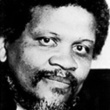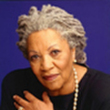Erasure: A Novel
(Libby/OverDrive eBook, Kindle)
Author
Contributors
Everett, Percival Author
Published
Graywolf Press , 2011.
Appears on these lists
Status
Available from Libby/OverDrive
Available Platforms
Libby/OverDrive
Titles may be read via Libby/OverDrive. Libby/OverDrive is a free app that allows users to borrow and read digital media from their local library, including ebooks, audiobooks, and magazines. Users can access Libby/OverDrive through the Libby/OverDrive app or online. The app is available for Android and iOS devices.
Kindle
Titles may be read using Kindle devices or with the Kindle app.
Description
Percival Everett's most recent novel, the academic satire Glyph, was hailed by the New York Times as "both a treatise and a romp." His new novel combines a touching story of a man coming to terms with his family heritage and a satiric indictment of race and publishing in America.Avant-garde novelist and college professor, woodworker, and fly fisherman -- Thelonious (Monk) Ellison has never allowed race to define his identity. But as both a writer and an African-American, he is offended and angered by the success of We's Lives in Da Ghetto, the exploitative debut novel of a young, middle-class black woman who once visited "some relatives in Harlem for a couple of days." Hailed as an authentic representation of the African-American experience, the book is a national bestseller and its author feted on the Kenya Dunston television show. Her book's success rankles all the more as Monk's own most recent novel has just notched its seventh rejection.Even as his career as a writer appears to have stalled, Monk finds himself coping with changes in his personal life. Forced to assume responsibility for a mother rapidly succumbing to Alzheimer's, Monk leaves his home in Los Angeles to return to the Washington, DC house in which he grew up. There he must come to terms with his ailing mother, his siblings, his own childhood and youth, and the legacy of his physician father, a suicide some seven years before. In need of distraction from old memories, new responsibilities, and his professional stagnation, Monk composes, in a heat of inspiration and energy, a fierce parody of the sort of exploitative, ghetto wanna-be lit represented by We's Lives in Da Ghetto.But when his agent sends this literary indictment (included here in its entirety) out to publishers, it is greeted as an authentic new voice of black America. Monk -- or his pseudonymous alter ego, Stagg R. Leigh -- is offered money, fame, success beyond anything Monk has known. And as demand begins to build for meetings with and appearances by Leigh, Monk is faced with a whole new set of problems.
Also in this Series
Checking series information...
Reviews from GoodReads
Loading GoodReads Reviews.
Citations
APA Citation, 7th Edition (style guide)
Everett, P. (2011). Erasure: A Novel . Graywolf Press.
Chicago / Turabian - Author Date Citation, 17th Edition (style guide)Everett, Percival. 2011. Erasure: A Novel. Graywolf Press.
Chicago / Turabian - Humanities (Notes and Bibliography) Citation, 17th Edition (style guide)Everett, Percival. Erasure: A Novel Graywolf Press, 2011.
Harvard Citation (style guide)Everett, P. (2011). Erasure: a novel. Graywolf Press.
MLA Citation, 9th Edition (style guide)Everett, Percival. Erasure: A Novel Graywolf Press, 2011.
Note! Citations contain only title, author, edition, publisher, and year published. Citations should be used as a guideline and should be double checked for accuracy. Citation formats are based on standards as of August 2021.
Copy Details
| Collection | Owned | Available | Number of Holds |
|---|---|---|---|
| Libby | 15 | 9 | 1 |
Staff View
Loading Staff View.
































